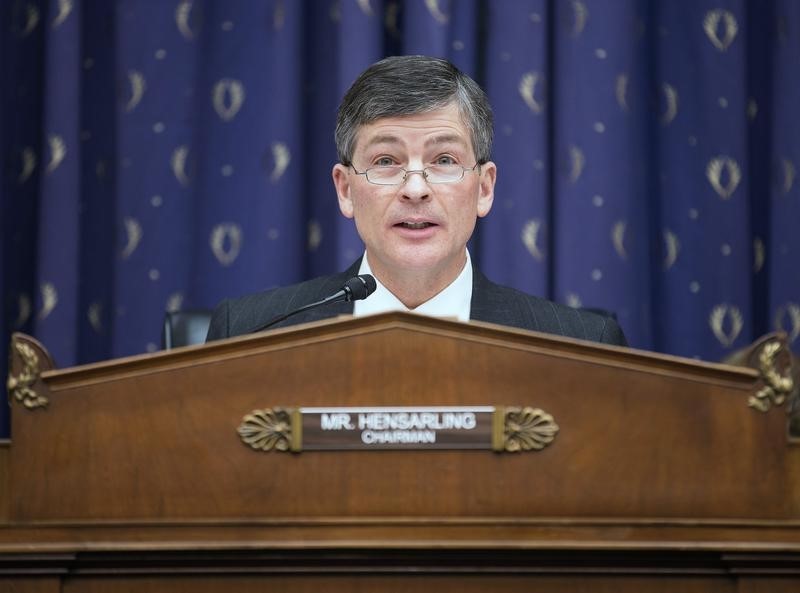By Sarah N. Lynch
WASHINGTON (Reuters) - The U.S. Justice and Treasury departments on Monday received subpoenas from a House of Representatives committee seeking documents on how decisions are made about when to prosecute big banks - information that it said the agencies have withheld.
In a statement, House Financial Services Committee Chairman Jeb Hensarling, a Republican, said the documents being requested will help the panel understand whether banks might still be too big to fail and if this affects decisions to prosecute them criminally.
The panel is also seeking information from both departments on other matters, including documents on whether the government retaliated against Standard & Poor's for its 2011 decision to downgrade the government's credit rating.
A Justice Department spokeswoman said the department has "made great efforts" to accommodate the committee's request and would continue to cooperate.
A Treasury spokesman said the department is willing to work with the panel and has cooperated. He added that the department regrets that Republicans "decided to take this unilateral step" by issuing the subpoena.
The committee's subpoena comes about two years since former Attorney General Eric Holder told a U.S. Senate committee that it can "become difficult" to prosecute large financial institutions because a criminal charge might have a broader impact on the economy.
Some lawmakers interpreted those comments to mean that some banks might be too big to fail, even though the 2010 Dodd-Frank Wall Street reform law was supposed to prevent banks from getting so big that their collapse could threaten the market.
Holder later backtracked on those comments, and in a May 2013 hearing before a House Financial Services panel, another former top Justice Department official assured lawmakers that no bank is too big to prosecute.
Hensarling said on Monday that his panel has been waiting for two years for documents it requested from the Justice Department, and it had only received "a small sampling" of records related to a drug money laundering probe of HSBC.
The panel also asked the Treasury Department for unredacted records in connection with the Justice Department's probe into the bank.
HSBC paid a $1.9 billion fine but avoided criminal charges through a deferred prosecution deal. (http://reut.rs/IFY4IE)
Since that time, however, the Justice Department has criminally charged big banks or units of big banks.
Last year, for instance, Credit Suisse (SIX:CSGN) pleaded guilty for its role in helping wealthy Americans dodge taxes and agreed to pay $2.5 billion. (http://reut.rs/1HaAAoq)
